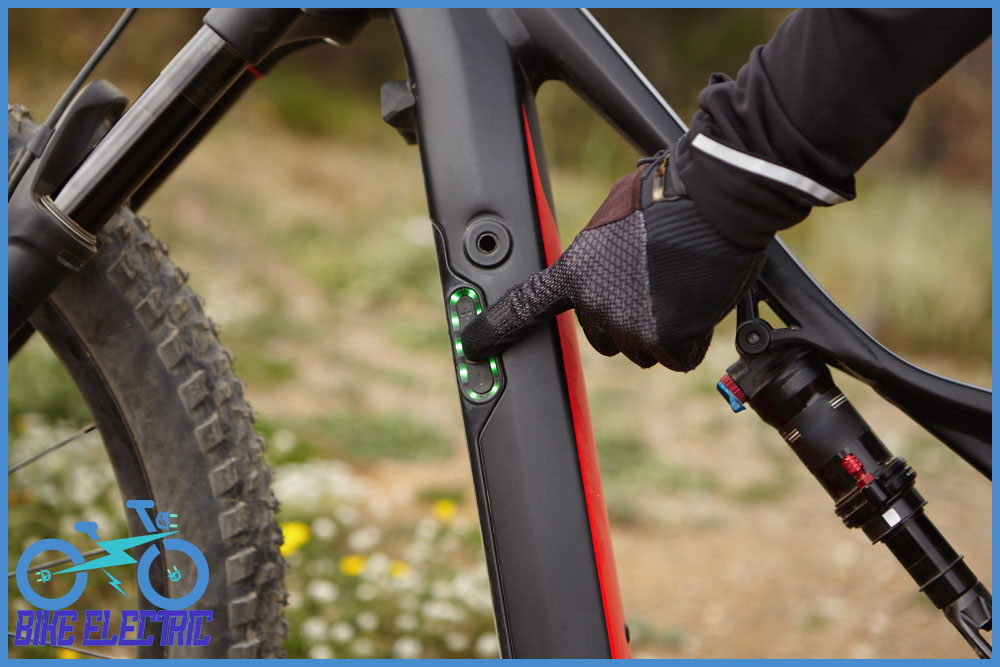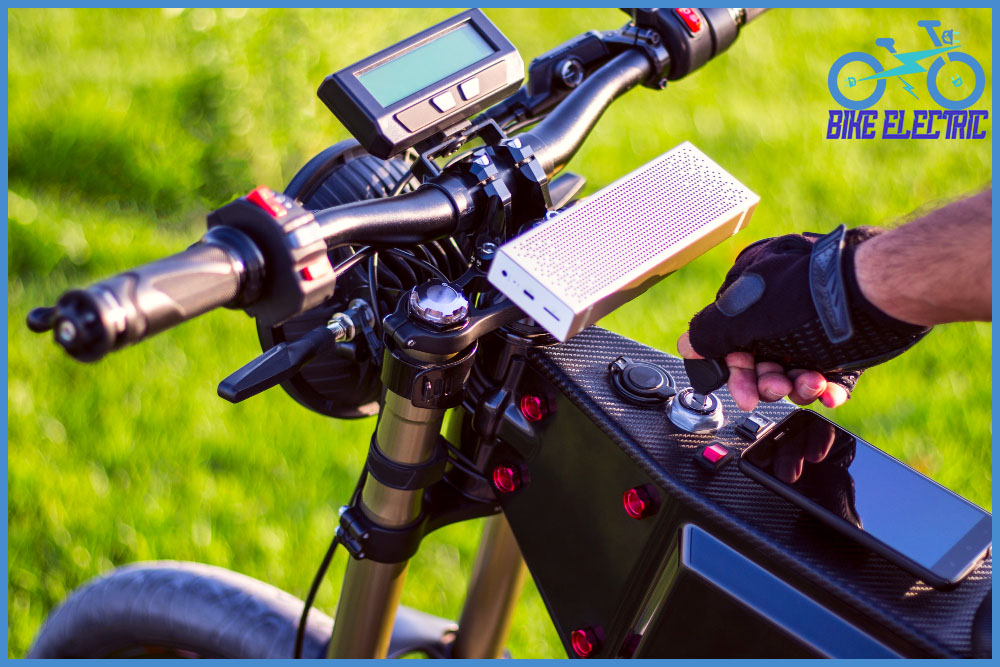Introduction


As we progress into 2024, the ebike industry is witnessing rapid technological advancements, particularly in battery technology. The evolution of ebike batteries is not just enhancing the performance and efficiency of electric bikes but also shaping the future of sustainable transportation. This article explores the cutting-edge trends in ebike battery technology, highlighting the significant innovations that are set to redefine the market.
Overview of Ebike Battery Technology
Ebikes rely on advanced battery technology to power their electric motors, providing a sustainable and efficient alternative to traditional transportation. The core of this technology has been centered around lithium-ion batteries, known for their high energy density and lightweight properties. However, as technology progresses, new battery technologies are emerging, promising even greater advancements.
Importance of Battery Technology in Ebikes
Battery technology is the heart of an ebike’s performance. It determines the bike’s range, charging time, and overall efficiency. As ebikes become increasingly popular for both commuting and recreational use, the demand for improved ebike battery performance is rising. Advanced battery technology not only enhances the user experience but also contributes to the broader goal of reducing carbon emissions.
Key Factors Driving Innovation in 2024
Several factors are driving innovation in ebike battery technology in 2024. These include the growing demand for longer-lasting and faster-charging batteries, advancements in material science, and increased focus on sustainability. The convergence of these elements is paving the way for revolutionary changes in how ebike batteries are designed and utilized.
Advancements in Lithium-Ion Batteries
Improved Energy Density and Efficiency
Recent advancements in lithium-ion ebike battery technology have focused on enhancing energy density and efficiency. Higher energy density means that batteries can store more power in a smaller and lighter package, which translates to increased range and improved performance. Efficiency improvements also ensure that less energy is wasted during charging and discharging cycles.
Longer Lifespan and Durability
Modern lithium-ion ebike batteries are being designed with longer lifespans and increased durability. This is achieved through better thermal management and advanced electrode materials, which help to mitigate the common issues of degradation and capacity loss over time. As a result, users can expect their ebike batteries to maintain optimal performance for extended periods.
Enhanced Charging Speed
The development of fast-charging technology is another significant advancement in lithium-ion batteries. New charging algorithms and improved ebike battery management systems enable rapid recharging, reducing downtime and enhancing convenience for users. Faster charging times are becoming a crucial feature, especially for those who rely on their ebikes for daily commuting.
Solid-State Batteries: The Next Frontier
Advantages Over Traditional Lithium-Ion
Solid-state electric bike batteries represent a significant leap forward from traditional lithium-ion technology. They use a solid electrolyte instead of a liquid one, which offers several advantages, including higher energy density, improved safety, and reduced risk of thermal runaway. These ebike batteries are also more resistant to temperature extremes and physical damage.
Current Research and Development
Ongoing research and development efforts are focused on overcoming the challenges associated with solid-state batteries, such as high production costs and scalability. Innovations in material science and manufacturing techniques are expected to make solid-state ebike batteries more commercially viable in the near future.
Projected Market Adoption
As the technology matures, solid-state batteries are anticipated to gain traction in the ebike market. Their superior performance characteristics make them an attractive option for high-end and premium ebikes. Industry experts predict that widespread adoption could occur within the next few years, driven by advancements in production and decreasing costs.
Graphene Batteries and Their Potential
Higher Conductivity and Faster Charging
Graphene electric bike batteries are another promising technology that leverages the unique properties of graphene to enhance battery performance. Graphene’s high electrical conductivity allows for faster charging and improved power delivery. This technology also offers potential benefits in terms of energy density and battery longevity.
Weight Reduction and Performance Benefits
The lightweight nature of graphene batteries contributes to a reduction in overall battery weight, which can enhance the performance and handling of ebikes. Improved power-to-weight ratios enable more efficient energy use and better overall ride dynamics.
The Rise of Modular Battery Systems
Flexibility and Customization for Users
Modular ebike battery systems are gaining popularity due to their flexibility and customization options. These systems allow users to configure their battery packs according to their specific needs, whether that involves increasing capacity for long rides or optimizing weight for enhanced performance. Modular designs also facilitate easier battery replacements and upgrades.
Impact on Ebike Design and Usability
The integration of modular battery systems is influencing ebike design and usability. Manufacturers are incorporating modular battery compartments into their designs, enabling more versatile and user-friendly ebikes. This approach also allows for easier maintenance and upgrades, enhancing the overall user experience.
Wireless Charging Technology
Convenience and User Experience
Wireless charging technology is revolutionizing the way ebike battery are recharged. This technology eliminates the need for physical connectors and cables, offering a more convenient and seamless charging experience. Users can simply place their ebike on a charging pad to recharge the battery, which simplifies the process and enhances user convenience.
Infrastructure Requirements and Challenges
The widespread adoption of wireless charging technology will require the development of appropriate infrastructure, such as charging pads and compatible stations. Addressing these infrastructure challenges will be crucial to ensuring that wireless charging becomes a practical and widely accessible option for ebike users.
Battery Management Systems (BMS) Enhancements
Advanced Monitoring and Diagnostics
Modern ebike battery management systems (BMS) are becoming increasingly sophisticated, incorporating advanced monitoring and diagnostic capabilities. These enhancements allow for real-time tracking of battery health, performance metrics, and potential issues. Advanced BMS technology ensures that batteries operate efficiently and safely, providing users with valuable insights into their battery’s condition.
Safety Features and Reliability
Enhanced safety features in BMS technology include improved thermal management, overcharge protection, and short-circuit prevention. These features contribute to the overall reliability of ebike batteries, reducing the risk of failures and ensuring safe operation.
Recycling and Sustainability Trends
Eco-Friendly Battery Disposal Solutions
As ebike battery technology advances, so does the focus on recycling and sustainability. Eco-friendly disposal solutions are being developed to manage the environmental impact of battery waste. These solutions include efficient recycling processes and initiatives to reduce the ecological footprint of battery production and disposal.
Circular Economy in Battery Production
The concept of a circular economy is gaining traction in battery production, emphasizing the reuse and recycling of materials. This approach aims to minimize waste and maximize resource efficiency, contributing to a more sustainable and environmentally responsible battery industry.
Integration with Smart Technology
Role of IoT in Battery Monitoring
The integration of smart technology and the Internet of Things (IoT) is enhancing battery monitoring and management. IoT-enabled batteries can communicate with connected devices, providing real-time data on battery performance and status. This connectivity allows for more precise monitoring and proactive maintenance.
Connectivity and Data Analysis
Advanced data analysis techniques are being employed to interpret the vast amounts of data generated by smart batteries. This analysis enables better decision-making and optimization of battery performance, leading to improved efficiency and user experience.
Future Predictions and Emerging Technologies
Potential Disruptors in Ebike Battery Technology
Several emerging technologies have the potential to disrupt the ebike battery market in the coming years. Innovations such as nanotechnology, advanced chemical formulations, and new energy storage materials could redefine battery performance and capabilities.
Conclusion
Summary of Key Trends and Innovations
The ebike battery technology landscape is rapidly evolving, with significant advancements in lithium-ion batteries, solid-state technology, graphene batteries, and modular systems. Wireless charging and smart technology integration are also shaping the future of ebike batteries, offering enhanced convenience, performance, and sustainability.
Implications for Ebike Users and Manufacturers
These trends have profound implications for both ebike users and manufacturers. Users can expect improved battery performance, longer lifespans, and more convenient charging options. Manufacturers will need to stay abreast of these developments to remain competitive and meet the growing demands of the market.
Looking Ahead: What to Expect in 2025
As we look towards 2025, the ebike battery industry is poised for continued innovation and growth. Advancements in ebike battery technology will likely lead to even greater enhancements in performance, efficiency, and sustainability, further transforming the electric biking experience.
As we gaze into the future of 2025, the ebike battery industry anticipates ongoing progress and expansion. The continuous evolution of ebike battery technology is expected to bring about substantial improvements in performance, efficiency, and sustainability, thereby revolutionizing the electric biking experience even further.


19 thoughts on “Top Trends in Ebike Battery Technology for 2024”